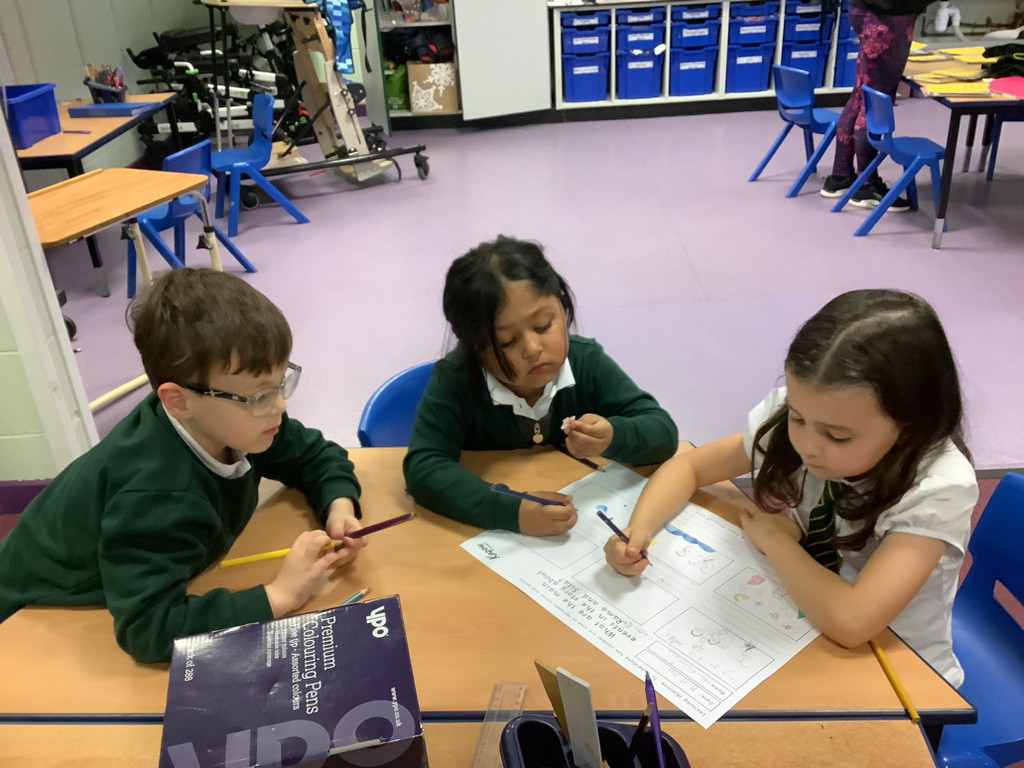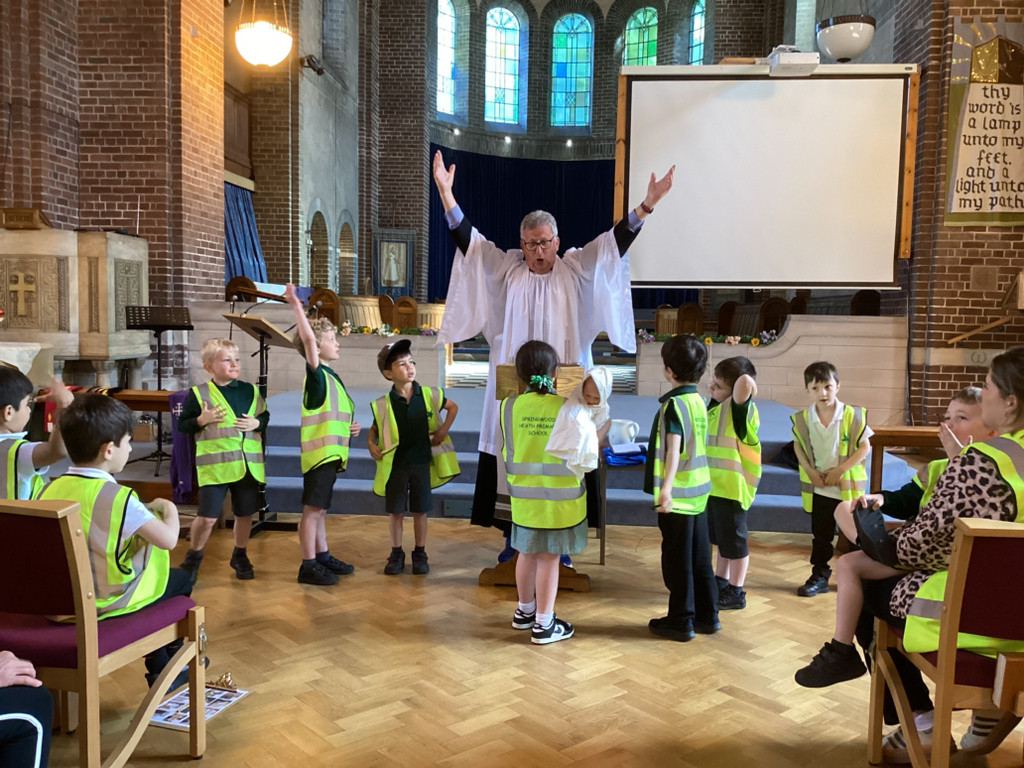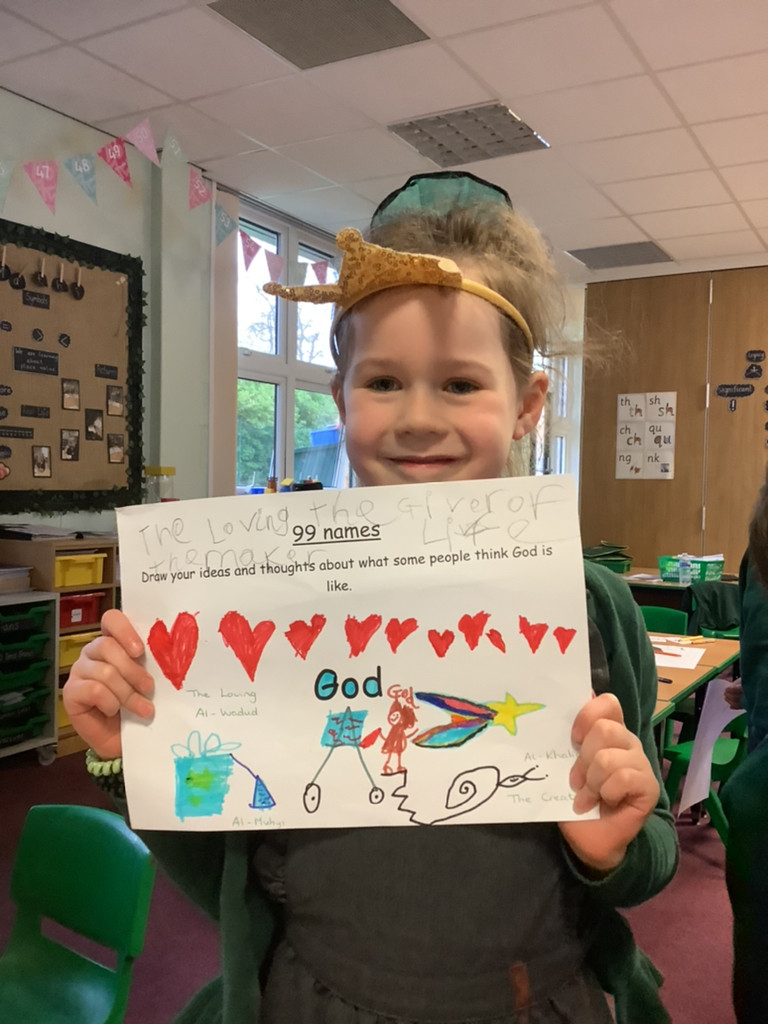Religious Education
Intent:
At Springwood Heath, our Religious Education (RE) curriculum is underpinned by the Kapow Primary Scheme of Work, which is designed to foster knowledge, understanding, and respect for different religious beliefs and worldviews. Our intent is to provide a broad, balanced, and inclusive RE curriculum that encourages pupils to explore faith, reflect on their own beliefs, and develop the skills to engage in meaningful dialogue about religion and ethics.
Our core aims through the Kapow RE scheme are to:
-
Promote Religious Literacy: Equip pupils with the vocabulary, concepts, and knowledge needed to understand and articulate a variety of religious and non-religious worldviews.
-
Foster Respect and Tolerance: Encourage children to appreciate diversity, reflect on different perspectives, and respect the beliefs and practices of others in our local and global communities.
-
Encourage Personal Reflection: Support pupils in forming their own beliefs and values while understanding how these may differ from others.
-
Develop Critical Thinking: Provide opportunities for pupils to question, analyse, and reflect on important moral and philosophical questions in a safe and respectful environment.
-
Build Cultural Awareness: Celebrate the richness of religious traditions and festivals, helping pupils connect their learning to real-world experiences and contemporary society.
Kapow’s RE curriculum is structured to ensure progression, depth, and variety, aligning with locally agreed syllabuses and national guidance. Through a spiral curriculum approach, pupils revisit key themes and concepts, building on their prior knowledge each year.
Our intent is not to instruct in any one religion, but to empower our pupils to become thoughtful, informed, and open-minded members of a multicultural society.

Implementation :
We implement the Kapow Primary RE scheme of work to ensure high-quality, engaging, and progressive Religious Education throughout the school. The scheme is carefully designed to meet the requirements of the locally agreed syllabus while reflecting the diversity of faiths and worldviews within our community and beyond.
How we implement RE through Kapow:
-
Structured, Spiral Curriculum: The Kapow scheme follows a spiral curriculum model, revisiting key themes and concepts such as belief, worship, celebration, and morality across year groups. This approach enables children to deepen their understanding over time.
-
Knowledge-Rich and Skills-Based Lessons: Lessons combine subject knowledge with opportunities to develop key skills such as interpretation, reflection, empathy, and critical thinking. Pupils are encouraged to explore religious texts, symbols, artefacts, and traditions.
-
Diverse Content: Children learn about a wide range of religions and worldviews, including Christianity, Islam, Hinduism, Judaism, Sikhism, Buddhism, and non-religious perspectives such as Humanism. This ensures inclusivity and promotes mutual respect.
-
Active and Creative Learning: Lessons incorporate discussions, drama, art, debate, storytelling, and enquiry-based learning to make RE interactive and thought-provoking. Children are given space to ask and explore "big questions" about life, meaning, and values.
-
Links to SMSC and British Values: RE is closely linked to Spiritual, Moral, Social and Cultural development and promotes the fundamental British values of tolerance, democracy, and mutual respect.
-
Assessment for Learning: Teachers use a range of formative assessment strategies built into the Kapow units to monitor understanding and progress. Children’s learning is captured through class discussions, written work, reflections, and creative outcomes.
-
Inclusive for All Learners: The scheme offers differentiation and adaptations to meet the needs of all pupils, including SEND and EAL learners, ensuring full access to RE for everyone.
Through consistent delivery of the Kapow RE curriculum, we aim to provide meaningful and enriching learning experiences that help shape pupils into reflective, respectful, and informed citizens.

Impact:
The impact of our Religious Education (RE) curriculum, delivered through the Kapow Primary Scheme of Work, is seen in the depth of understanding, respect, and reflective thinking demonstrated by our pupils.-
Our intent and implementation combine to ensure that the impact of RE is meaningful, measurable, and lasting.
The impact of our RE curriculum can be seen in:
-
Religious and Cultural Understanding: Pupils develop a secure and respectful understanding of major world religions and belief systems. They can confidently explain beliefs, practices, and the significance of festivals, symbols, and places of worship.
-
Personal Reflection and Spiritual Growth: Children are encouraged to consider their own values and beliefs. They show an increased ability to reflect thoughtfully on big questions about life, purpose, and morality.
-
Respect and Tolerance: Pupils demonstrate inclusive attitudes and empathy towards those of different faiths and worldviews. They apply these values in school and beyond, contributing positively to a diverse society.
-
Progressive Knowledge and Skills: Through the Kapow spiral curriculum, children build on prior learning year by year. They develop critical thinking, questioning, comparison, and evaluation skills which are evident in their discussions and written work.
-
Engagement and Enjoyment: Learners engage with RE lessons enthusiastically. They enjoy exploring faith through a wide range of creative and enquiry-based activities, including storytelling, role play, debates, and arts-based responses.
-
Evidence of Learning: Work in books, floor books, displays, and pupil voice shows that children can recall key concepts, apply their learning to real-life situations, and make connections across different religious and ethical topics.
-
Assessment Outcomes: Ongoing formative assessments and pupil reflections show clear progress in knowledge, understanding, and the ability to express thoughtful viewpoints respectfully and accurately.
By the time pupils leave Springwood Heath, they are religiously literate, respectful of others, and equipped to thrive in a modern, multi-faith world. The impact of our RE provision goes beyond academic knowledge—shaping pupils into thoughtful, open-minded individuals.
-





